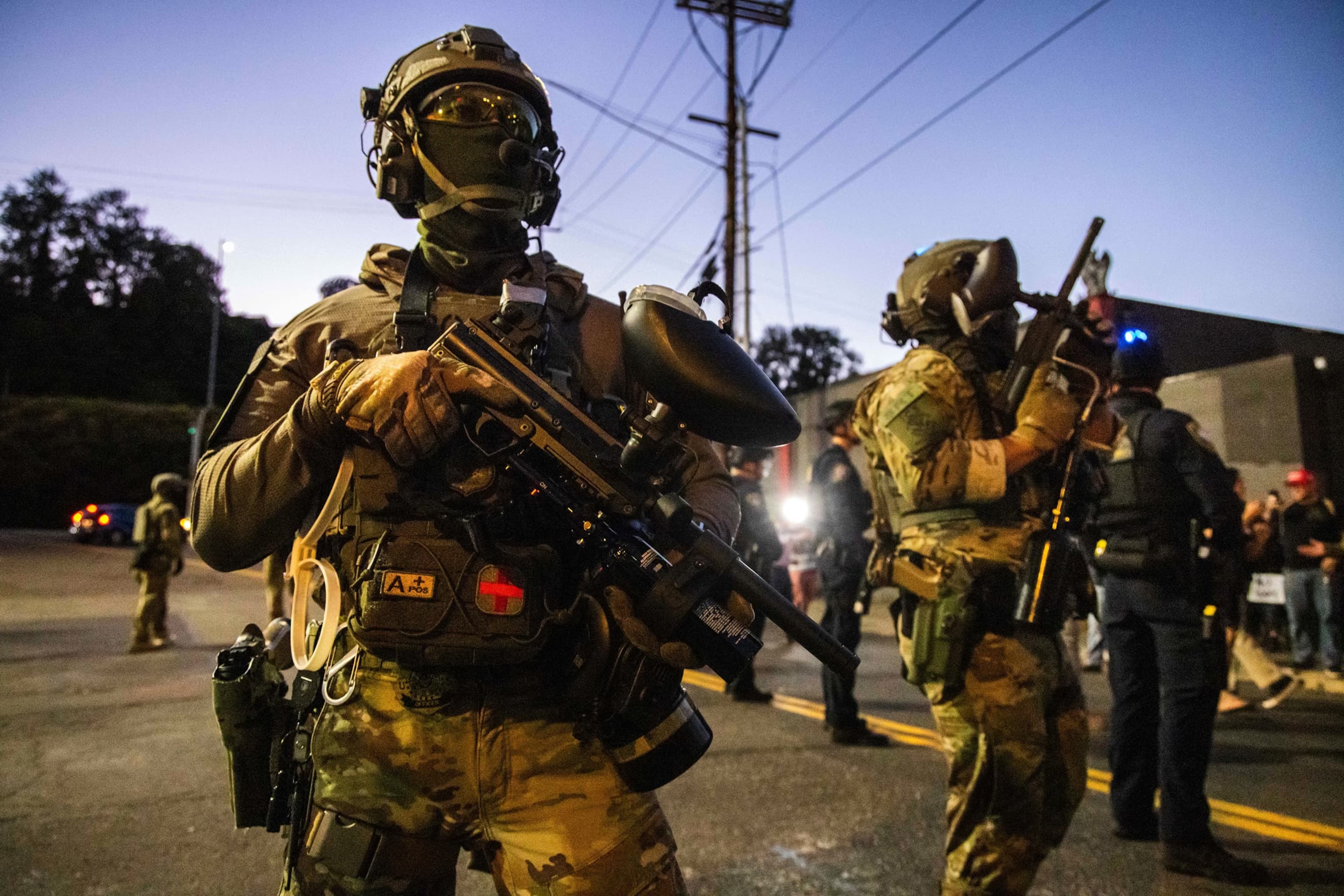We're loading the full news article for you. This includes the article content, images, author information, and related articles.
A US appeals court has temporarily lifted an order that prevented the federalisation of Oregon National Guard troops, but a broader injunction still bars their deployment to Portland.

NAIROBI, Kenya – The Ninth Circuit Court of Appeals has temporarily lifted a lower court's order that had blocked the federalisation of Oregon National Guard troops. However, a separate, broader injunction remains in effect, continuing to prohibit the deployment of any state's National Guard into Portland.
The ruling, issued on Wednesday, October 8, 2025, by a three-judge panel, allows the 200 Oregon National Guard members to remain under federal control. This decision is an administrative stay, intended to preserve the status quo while the court prepares to fully address the legal questions surrounding the deployment. Oral arguments on the matter are scheduled for Thursday, October 9, 2025, at 9:00 AM Pacific Time (7:00 PM EAT).
The legal battle stems from President Donald Trump's September 28, 2025, announcement to deploy federal troops to Portland, describing the city as "war-ravaged" due to ongoing protests near a U.S. Immigration and Customs Enforcement (ICE) facility. Oregon Attorney General Dan Rayfield, along with the City of Portland, filed a lawsuit arguing that the federalisation lacked a legal basis and infringed upon state sovereignty.
U.S. District Judge Karin Immergut, a Trump appointee, initially issued a temporary restraining order on Saturday, October 4, 2025, blocking the federalisation and deployment of the Oregon National Guard. Following this, the Trump administration reportedly attempted to deploy federalised National Guard troops from California and Texas to Oregon. Judge Immergut responded with a second, broader order on Sunday, October 5, 2025, prohibiting the deployment of any federalised National Guard members from any state into Oregon.
The core of the legal dispute revolves around 10 U.S.C. §12406, which outlines the conditions under which the National Guard may be federalised (invasion, rebellion, or inability to execute federal laws). Oregon's lawsuit contended that none of these conditions were met in Portland, asserting that the protests were largely peaceful and manageable by local law enforcement.
Oregon Attorney General Dan Rayfield stated that the President's actions were "not about keeping people safe – it's about chasing headlines at the expense of our community." He further emphasised that "Oregon is our home — not a military target."
Oregon Governor Tina Kotek had previously urged the U.S. Northern Command to demobilise the federalised Guard members, citing the lower court's restraining orders. Local businesses in Portland have also expressed concerns about the perception of the city. Lisa Schroeder, owner of Mother's Bistro and Bar, noted that her business had significantly declined since the 2020 pandemic and protests, stating, "My business is half of what it was, but it's certainly not going to get better by somebody telling the world that our city is war-ravaged."
Protesters in Portland have also voiced strong opposition to the deployment, with some describing the move as an "act of civil war" and highlighting concerns over the militarisation of American towns.
Analysts suggest that this legal development could influence public debate and policy execution, with calls for clarity on timelines, costs, and safeguards related to such deployments. The ongoing legal challenges underscore a significant constitutional debate regarding the balance of power between federal and state governments in matters of domestic security and the use of National Guard forces. The perception of Portland as a "war-ravaged" city, as described by President Trump, has also raised concerns among local residents and businesses about its impact on the city's economy and reputation.
While the Oregon National Guard troops can remain federalised, the critical question of whether they, or any other federalised Guard members, can be deployed to Portland remains unresolved due to the standing broader injunction. The outcome of Thursday's oral arguments will be crucial in determining the immediate next steps in this complex legal and political standoff. The differing interpretations of the necessity for federal intervention and the extent of presidential authority over state National Guard units continue to be central points of contention.
The Ninth Circuit Court of Appeals will hear oral arguments on Thursday, October 9, 2025, at 9:00 AM Pacific Time (7:00 PM EAT). This hearing is expected to provide further clarity on the legal standing of the deployment. Depending on the court's decision, the case could either return to Judge Immergut's court for further litigation or lead to a more definitive ruling on the injunctions.
All eyes will be on the Ninth Circuit Court of Appeals' proceedings on Thursday, October 9, 2025, as their decision will significantly impact the immediate future of National Guard deployment in Portland. The ruling will also set a precedent for similar federal-state disputes over military deployments within the United States.
Keep the conversation in one place—threads here stay linked to the story and in the forums.
Sign in to start a discussion
Start a conversation about this story and keep it linked here.
Other hot threads
E-sports and Gaming Community in Kenya
Active 9 months ago
The Role of Technology in Modern Agriculture (AgriTech)
Active 9 months ago
Popular Recreational Activities Across Counties
Active 9 months ago
Investing in Youth Sports Development Programs
Active 9 months ago